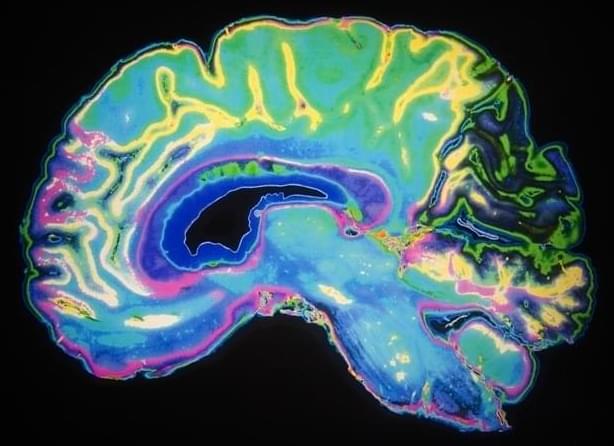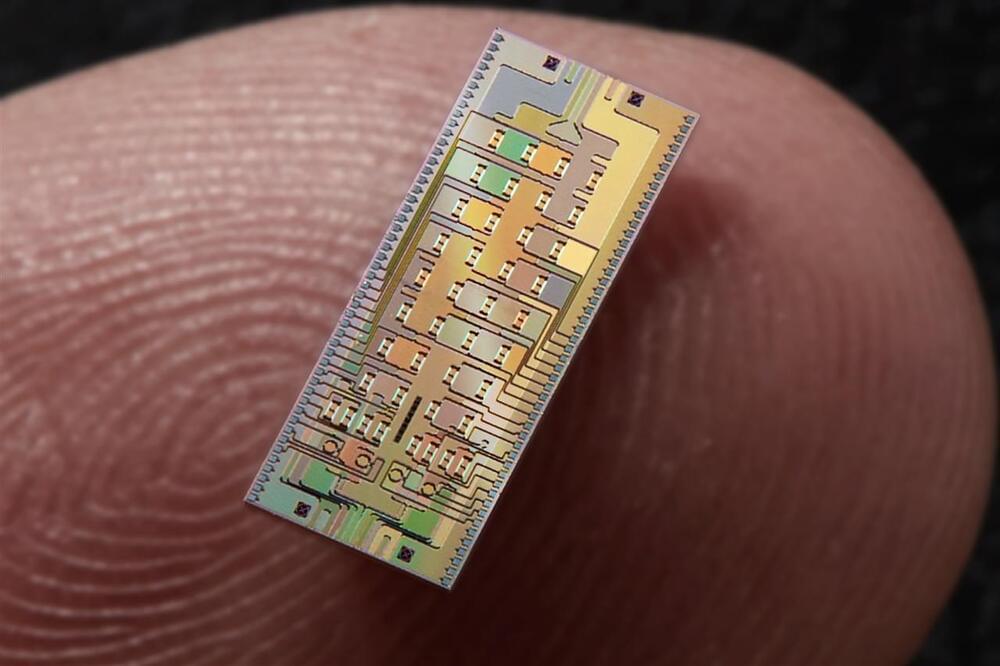The surprise sacking of the AI venture’s CEO was followed by a near mutiny at the company and his reinstatement.


It is already disorienting enough to accept that our attention only absorbs a fraction of the events and phenomena unfolding within and around us at any given moment. Now consider that our memory only retains a fraction of what we have attended to in moments past. In the act of recollection, we take these fragments of fragments and try to reconstruct from them a totality of a remembered reality, playing out in the theater of the mind — a stage on which, as neuroscientist Antonio Damasio has observed in his landmark work on consciousness, we often “use our minds not to discover facts, but to hide them.”
We do this on the personal level — out of such selective memory and by such exquisite exclusion, we compose the narrative that is the psychological pillar of our identity. We do it on the cultural level — what we call history is a collective selective memory that excludes far more of the past’s realities than it includes. Borges captured this with his characteristic poetic-philosophical precision when he observed that “we are our memory… that chimerical museum of shifting shapes, that pile of broken mirrors.” To be aware of memory’s chimera is to recognize the slippery, shape-shifting nature of even those truths we think we are grasping most firmly.
Nearly a century after Nietzsche admonished that what we call truth is https://www.themarginalian.org/2018/03/26/nietzsche-on-truth…ral-sense/ the great Japanese filmmaker Akira Kurosawa (March 23, 1910–September 6, 1998) created an exquisite cinematic metaphor for the slippery memory-mediated nature of truth in his 1950 film Rashomon, based on Ryunosuke Akutagawa’s short story “In a Grove” — a psychological-philosophical thriller about the murder of a samurai and its four witnesses, who each recount a radically different reality, each equally believable, thus undermining our most elemental trust in truth.
https://www.hdiac.org/podcast/neuroweapons-part-2/
The second installment of this two-part podcast continues the conversation with Dr. Giordano on the implications of weaponizing brain science. In an article he wrote for HDIAC in 2016 titled ‘Battlescape Brain’, Dr. Giordano hinted at the possibility of a neuroweapons arms race that could follow from international surveillance. Dr. Giordano provides an updated look at these concerns in the context of today’s environment. He concludes by describing ethical frameworks that could regulate future policies for biotechnology as the world moves forward in this dynamic area.
Watch regular HDIAC webinars and video podcasts by subscribing:
Become a member of the Homeland Defense and Security Information Analysis Center: https://www.hdiac.org/register/
Visit: www.hdiac.org.
Follow: https://www.instagram.com/dod_hdiac/
Like: https://www.facebook.com/DoDHDIAC/
Tweet: https://twitter.com/DoD_HDIAC
Connect: https://www.linkedin.com/company/dodhdiac
https://www.hdiac.org/podcast/neuroweapons-part-1/
In part one of this two-part podcast, HDIAC analyst Mara Kiernan interviews Dr. James Giordano, a Professor in the department of Neurology and Biochemistry at Georgetown University Medical Center. The discussion begins with Dr. Giordano defining neuroweapons and explaining their applied technologies. He provides insight into the manner in which international weapons conventions govern the use neuroweapons and discusses the threats presented by neuroweapons in today’s environment. Dr. Giordano goes on to review the need for continuous monitoring, including his views regarding challenges and potential solutions for effectively understanding global developments in neuroweapon technologies.
Watch regular HDIAC webinars and video podcasts by subscribing:
Become a member of the Homeland Defense and Security Information Analysis Center: https://www.hdiac.org/register/
Visit: www.hdiac.org.
Follow: https://www.instagram.com/dod_hdiac/
Like: https://www.facebook.com/DoDHDIAC/
Tweet: https://twitter.com/DoD_HDIAC
Connect: https://www.linkedin.com/company/dodhdiac

The capacity to regulate the biodistribution of therapeutics is a highly desired feature that can limit the side effects of many drugs. In a new study in Scientific Reports, Noah Joseph, and a team of biotechnology and nanoscience scientists in Israel, describe a nanoscale agent developed from a coupled polymer-DNA origami hybrid capable of exhibiting stability in serum and slow diffusion through tissues.
By coupling to fragments of polyethylene glycol through polyamine electrostatic interactions, the team noted marked stability of the agents in vivo, where more than 90% of the constituents maintained structural integrity for five days after subcutaneous injection.
The findings highlight the polymer-DNA hybrid nanostructures as viable pharmacological agents that can enter mainstream technologies, including their use as monoclonal antibodies for drug activity.
In this video, we will explain a new paper that suggests that there was a second big bang, or a “Dark Big Bang”, that created different kinds of dark matter particles, some of which could be very massive. We will explain how this hypothesis could solve two of the biggest mysteries in cosmology: the origin of the universe and the nature of dark matter. We will also explain how this hypothesis could be tested by future experiments, such as gravitational wave detectors and gamma-ray telescopes. The paper offers a new perspective on the history and structure of the universe, and challenges some of the assumptions and predictions of the standard cosmological model. The paper also opens new possibilities for exploring and understanding the dark sector of the universe, which could reveal new physics and phenomena. So, stay tuned and get ready to explore the dark side of the big bang.
Chapters:
00:00 Introduction.
02:00 The Dark Big Bang.
03:55 The Origin of the Universe.
06:22 The Nature of Dark Matter.
08:27 Outro.
09:03 Enjoy.
Best Telescopes for beginners:
Celestron 70mm Travel Scope.
https://amzn.to/3jBi3yY
Celestron 114LCM Computerized Newtonian Telescope.
https://amzn.to/3VzNUgU
Celestron – StarSense Explorer LT 80AZ
https://amzn.to/3jBRmds.
Visit our website for up-to-the-minute updates:

What is the mechanism that allows our brains to incorporate new information about the world, and form memories? New work by a team of neuroscientists led by Dr Tomás Ryan from Trinity College Dublin shows that learning occurs through the continuous formation of new connectivity patterns between specific engram cells in different regions of the brain.
Whether on purpose, incidentally, or simply by accident, we are constantly learning and so our brains are constantly changing. When we navigate the world, interact with each other, or consume media content, our brain is grasping information, creating new memories.
The next time we walk down the street, meet our friends, or come across something that reminds us of the last podcast we listened to, we will quickly re-engage that memory information somewhere in our brain. But how do these experiences modify our neurons to allow us to form these new memories?

By using a special combination of laser beams as a very fast stirrer, RIKEN physicists have created multiple vortices in a quantum photonic system and tracked their evolution. This system could be used to explore exotic new physics related to the emergence of quantum states from vortex matter. The research is published in the journal Nano Letters.
In principle, if you were to swim in a pool filled with a superfluid, a single stroke would be all you need to swim an infinite number of laps. That’s because, unlike normal fluids like water, superfluids have no resistance to motion below a certain velocity.
Superfluids also behave weirdly when stirred. “If you stir a bucket of water, you typically get just one big vortex,” explains Michael Fraser of the RIKEN Center for Emergent Matter Science. “But when you rotate a superfluid, you initially create one vortex. And when you rotate it faster, you get progressively more and more vortices of precisely the same size.”

The Four Realms of Existence by Joseph LeDoux and Consciousness by John Parrington tell us a lot about human cognition, brain structure and evolution – but most of all they demonstrate how far this most tricky of quests still has to go.

Silicon photonics (SiPh), the manufacturing of integrated photonics on CMOS platform, has been a buzzword in the recent two years, given the technology’s promising prospect to deliver a faster, securer and more efficient solution to data centers increasingly burdened by the ever-growing transmission demand of AI. However, the potential of silicon photonics is not confined to the realm of conventional computing and communication.